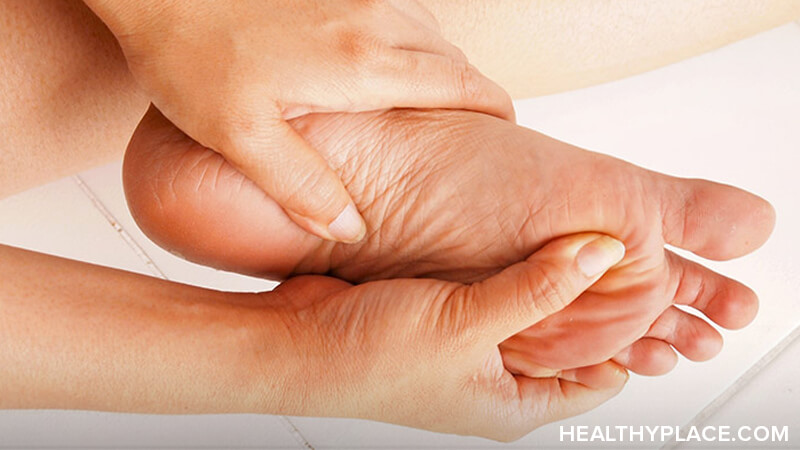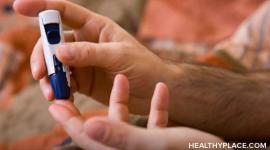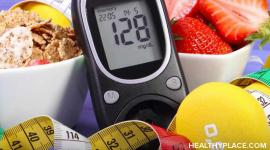Do I have Diabetes? Here’s How to Tell

Diabetes is a serious, life-long disease, and the question, Do I have diabetes? is a common worry. Rightly so, as approximately six percent of the American population has diabetes, and for those in certain ethnic groups, the rate is nearly double (Collazo-Clavell, 2001). Further, one in three adults in the U.S. is at risk for developing type 2 diabetes (American Diabetes Association, n.d.). “Do I have diabetes” is a great question to ask because it equips you with the information you need to prevent or manage this illness.
Diabetes has three primary forms: type 1, type 2, and gestational diabetes. Type 1 is rare, comprising only five- to 10 percent of diabetes cases, leaving all the rest for type 2. Gestational diabetes occurs only in pregnancy so is not numbered among these statistics. When people are concerned about diabetes, it is typically type 2 that applies ("What Are the Diabetes Risk Factors?").
How Do I Know I Have Diabetes? Check This Diabetes Symptoms List
The only way to know with certainty if you have diabetes is by visiting your doctor. Diabetes must be diagnosed by a physician who will ask you questions about your lifestyle and any symptoms you might be having, and then he or she will order lab tests to check your blood sugar level. Diabetes involves hyperglycemia, or high blood sugar, and the only way to know if you have it is with lab tests.
Of course, there are symptoms and risk factors that can serve as warning signs, alerting you to the possibility that you have diabetes. Consider this diabetes symptoms list to see if you have some of them:
- Increased thirst
- Frequent urination
- Increased hunger
- Weight gain (or sometimes weight loss)
- Blurred vision
- Fatigue
- Frequent or slow-healing infections
- Erectile dysfunction
- Dry skin, itchy skin
- Acanthosis, or darkening of the skin on the neck, armpits, or other areas of the body
Unfortunately, many of these symptoms don’t appear until your blood glucose levels have climbed high enough for a type 2 diabetes diagnosis. If you have any of the above symptoms (most people don’t have all of them), it’s a good idea to have a medical check-up ("What Are Type 2 Diabetes Symptoms?").
You don’t have to passively wait for symptoms to appear, however. Because symptoms don’t appear immediately, you might wonder, How do I know I have diabetes? Knowing the risk factors can help you take action if you are concerned about having diabetes.
Risk Factors of Type 2 Diabetes
If you have any of the following risk factors, your chances of developing type 2 diabetes increase.
- Family history (a parent or sibling with diabetes increases your risk)
- Prior gestational diabetes
- Older age (risk increases after age 45)
- Race/ethnicity (African Americans, Latino/a Americans, Native Americans, Pacific Islanders, and some Asian Americans have a higher risk than others)
- Current impaired glucose tolerance (prediabetes)
- Sedentary lifestyle
- Obesity
Of these risk factors, perhaps the two biggest are also the ones in your control: weight and activity level. Seventy-five percent of people with type 2 diabetes either are or have been obese (American Diabetes Association, 2011). Weight is key because body fat makes it difficult for the hormone, insulin to get glucose out of the bloodstream and into the cells of the body. This creates hyperglycemia and leads to a host of other health problems.
You Can Prevent and Treat Type 2 Diabetes
There is good news: you can prevent type 2 diabetes from developing, and if you already have it, you can do things to minimize its impact on your health and life. If you are concerned that you have diabetes, see your doctor and get screened. Test results can tell you whether or not you have it so you can begin treatment or take measures to prevent it from developing.
The biggest impact comes from lifestyle changes. Manage your weight; eat nutritiously; avoid processed foods, foods high in fat and cholesterol, and sugar (including sugary drinks); and be active, exercising about 20 minutes per day five times a week. Your doctor can tell you if you have diabetes, and you can take charge of your lifestyle to prevent or manage it well.
APA Reference
Peterson, T.
(2022, January 4). Do I have Diabetes? Here’s How to Tell, HealthyPlace. Retrieved
on 2026, March 3 from https://www.healthyplace.com/diabetes/main/do-i-have-diabetes-heres-how-to-tell



